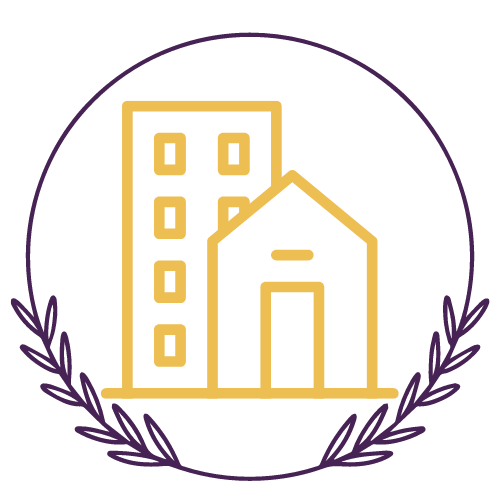
Priorities
Melissa’s vision for Chapel Hill…
… is a community that is stronger and more interesting, with local businesses that are more vibrant, and a future that is more resilient.
Housing
Everyone in our community deserves a safe, affordable place to live.
- Chapel Hill has a strong affordable housing program, but it needs to be strengthened so that we can meet our community’s needs. For this, we should use any federal funding available, as well as pursuing public-private partnerships that have worked elsewhere for community-centered projects.
- In addition, there are 40,000 people who commute into Chapel Hill daily because they cannot afford to live here. This is largely because we lack enough housing in between expensive single-family homes and subsidized affordable housing, also known as missing middle housing. Building missing middle housing will make our community stronger and more interesting, our local businesses more vibrant, and our future more resilient.
- Building more housing in Chapel Hill will also reduce traffic in town, cut the pollution coming from those cars, and help save our unique rural buffer from the effects of more sprawl.
- Finally, as we add gentle density in neighborhoods and more intensive density along transit lines, we must intersperse it with accessible shared green space for our wellbeing and that of other living things.
Environment
Chapel Hill has ambitious goals to address our local contributions to the environmental challenges of our time. With strategic actions, we can meet those goals and create a resilient community that fosters residents’ wellbeing.
- Local “business as usual” decisions have contributed to environmental degradation and climate change, and, in turn, climate change will worsen many of our ongoing problems, like flooding, air quality, heat emergencies, and food costs. We must ensure that all our local decisions maximize environmental benefits and minimize unintended consequences.
- We need our elected officials to understand the way different parts of our urban system connect so that we can enact policies that solve multiple problems at once and minimize a “domino effect” of impacts on our environment.
- As a community sustainability expert, Melissa is the only candidate that would bring this knowledge to the Chapel Hill Town Council. When we take action for our environment, we will create a town that sustains the planet and the wellbeing of our community: humans, plants, and animals.
Green Space and Urban Habitats
Chapel Hill prides itself on our trees. But we need to be more mindful about how we save, expand or sacrifice trees and greenspace as we move into the future.
- The valuable diversity of Earth’s plants and animals has been critically impacted by habitat destruction (especially by sprawl) and climate change. Humans innately need nature for our mental health and we need nature’s services, like clean air, soil, pollination, and shade. The more biologically diverse green space is, the more benefits it provides. Mental health benefits pay off, in turn, with lower health care costs and lower crime.
- For both our human residents and the endangered biological systems of our region, we need to add more, and more connected, green spaces to our town and protect remaining natural areas. As we build our Everywhere to Everywhere Greenway system, we can use these areas for multiple benefits – relaxation, pollinator gardens, shade to fight urban heat, and flood control, as well as walk/bike/roll pathways.
- Finally, where trees are taken out, we need to either adequately replace them, or make the sacrifice worth it, with more people housed per acre or more acres of trees saved elsewhere: in other words, we should build densely and efficiently rather than clear-cutting trees to build more single-family homes on large lots. Doing so will conserve our supply of greenspace in town and in the surrounding region.
Transportation
A comprehensive transportation system in Chapel Hill will both improve our wellbeing and help protect the planet.
- Many people believe that traffic is our worst transportation issue, but our traffic is largely caused by the 40,000 people who commute into Chapel Hill every day because they cannot afford to live here. Transportation is the largest source of climate-changing gases, and climate experts agree this is because we have allowed car-centric development to sprawl over forests and farmland, rather than building housing along transit corridors in town.
- Local governments world-wide are finding that building bike and pedestrian infrastructure and investing in public transit are good first steps in moving away from a car-centric transportation system. By making smart land use decisions for our growing population, expanding and electrifying our great transit system, hooking it into regional transit, and strategically implementing our Everywhere to Everywhere Greenways plan, we can reach our destinations happier, healthier and and more cheaply.
Students
There’s an old saying that you never step into the same river twice, and our student population is like the water of that river. Individually, they may flow through, but the existence and needs of a student population, as well as their benefit to the local economy and community, are perennial to our university town.
- UNC should certainly take more responsibility for housing students, and has, at the least, an area of land available (now fenced around condemned apartments). Simply inviting developers to build dense housing there will take some burden off the very limited land available in town.
- However, we should also welcome students into the rest of town, where they can ride transit or walk and bike to campus, rather than driving in from cheaper living situations. For graduate students, medical residents and other students who may be here for several years, housing that’s integrated into the community, like accessory dwelling units or small multiplexes, can let them live in supportive neighborhoods and be active members of the community. And if they move into jobs at UNC, they will be able to afford to stay in such homes and continue to contribute to Chapel Hill.
- A diverse, multi-age community is more vibrant and benefits all our residents. Undergraduate, graduate, and professional students have always made Chapel Hill the vibrant, exciting town that it is; students contribute so much to our community, and it’s time we pay them back by making our town affordable and accessible to them during and after their studies.
Equity and Affordability for Everyone
Because of the history of the South and the inequalities of our nation, state, and town, people born disadvantaged are too often unable to overcome structural burdens and a lack of opportunity.
- We cannot “make up for” centuries of mistreatment of whole populations, but we can put in an earnest, persistent effort to address existing inequalities through outreach, housing, and social services. As we work toward some semblance of “fairness,” we should also recognize that, as Paul Wellstone said, “we all do better when we all do better.”
- Making sure everyone has adequate food, housing, and community amenities pays off for the whole town. It enables stronger children who can reach their potential, stronger communities who watch out for each other, and more successful citizens who can contribute more to their communities.
- When we’ve become the Chapel Hill we aspire to be, we will have built a stable community where all of us belong, feel valued and are empowered to live authentically.
What matters to you most?






